Corner Entry Shower Enclosures
Thinking about upgrading your bathroom? Corner-entry shower enclosures might be just what you need. These nifty shower setups are becoming more popular in homes, and for good reason. They're not just another bathroom fixture - they can really change how your space looks and feels.
Novellini Media2.0 A80 Corner Entry Thermostatic Sliding Shower Enclosure
Now Only £798.55
Ideal Standard Connect 2 900 x 760mm Offset Quadrant Enclosure - Chrome
Now Only £808.69
Novellini Media2.0 A90 Corner Entry Thermostatic Sliding Shower Enclosure
Now Only £855.24
Ideal Standard Connect 2 1000 x 800mm Offset Quadrant Enclosure - Chrome
Now Only £890.29
Novellini Media2.0 GF90 Corner Entry Thermostatic Pivot Shower Enclosure
Now Only £910.98
Ideal Standard i.life 800mm Bright Silver Corner Entry Shower Enclosure
Now Only £975.69
Ideal Standard Connect 2 1200 x 800mm Offset Quadrant Enclosure - Chrome
Now Only £979.32
Ideal Standard Connect 2 1200 x 900mm Offset Quadrant Enclosure - Chrome
Now Only £994.15
Ideal Standard i.life 900mm Bright Silver Corner Entry Shower Enclosure
Now Only £1,054.51
Picking the right shower enclosure is a big deal. It's not just about having a place to wash up. The right choice can make your bathroom look bigger, feel more luxurious, and even add value to your home. Plus, it needs to fit your lifestyle. Do you need something easy to clean? Something that looks great? Or maybe you're working in a tight space? Corner entry shower enclosures tick a lot of these boxes.
What are Corner Entry Shower Enclosures?
Let's break it down. Corner entry shower enclosures are exactly what they sound like: shower enclosures that fit into the corner of your bathroom and that you enter from the corner. They usually have two sliding glass doors that meet in the middle, forming a neat triangle shape when open.
These enclosures are built to make the most of your bathroom space. They're designed to fit snugly into a corner, which is often wasted space in many bathrooms. This clever use of space is one of the big reasons people choose them.
But there's more to like about corner entry shower enclosures:
Space-saving design: As mentioned, these enclosures are great for smaller bathrooms. They don't need a lot of space to open and close, unlike some other shower door types. This means you can have a roomy shower without eating up too much floor space.
Modern look: Corner entry enclosures often have a sleek, minimalist design. They can make your bathroom look more up-to-date and stylish. The glass doors let light through, which can make your bathroom feel bigger and brighter.
Easy to use: The sliding doors are simple to operate. They're a beneficial choice for people with mobility issues, as there's no need to step over a high tub edge or deal with a heavy swinging door.
Types of Shower Doors for Corner Entry Enclosures
Sliding Doors
Sliding doors are the most common type for corner entry enclosures. They work by gliding along a track at the top and bottom of the enclosure. You just slide them open and closed - simple as that.
These doors are great because they don't need any extra space to swing open. This makes them perfect for tight bathrooms. They're also easy to use and can give your shower a sleek, modern look.
Most sliding doors are made of tempered glass. You can get them in clear glass, frosted, or even patterned designs. The frames are usually aluminium or stainless steel, which are both durable and resist rust.
Pivot Doors
Pivot doors are a bit different. They swing open on a pivot point, usually at the top and bottom of the door. Think of them like a revolving door, but for your shower.
The cool thing about pivot doors is they can open both inwards and outwards. This gives you more flexibility in how you use your shower space. They also tend to have a more high-end look compared to sliding doors.
Pivot doors work best in bathrooms with a bit more space. They need room to swing, so they're not ideal for very small bathrooms.
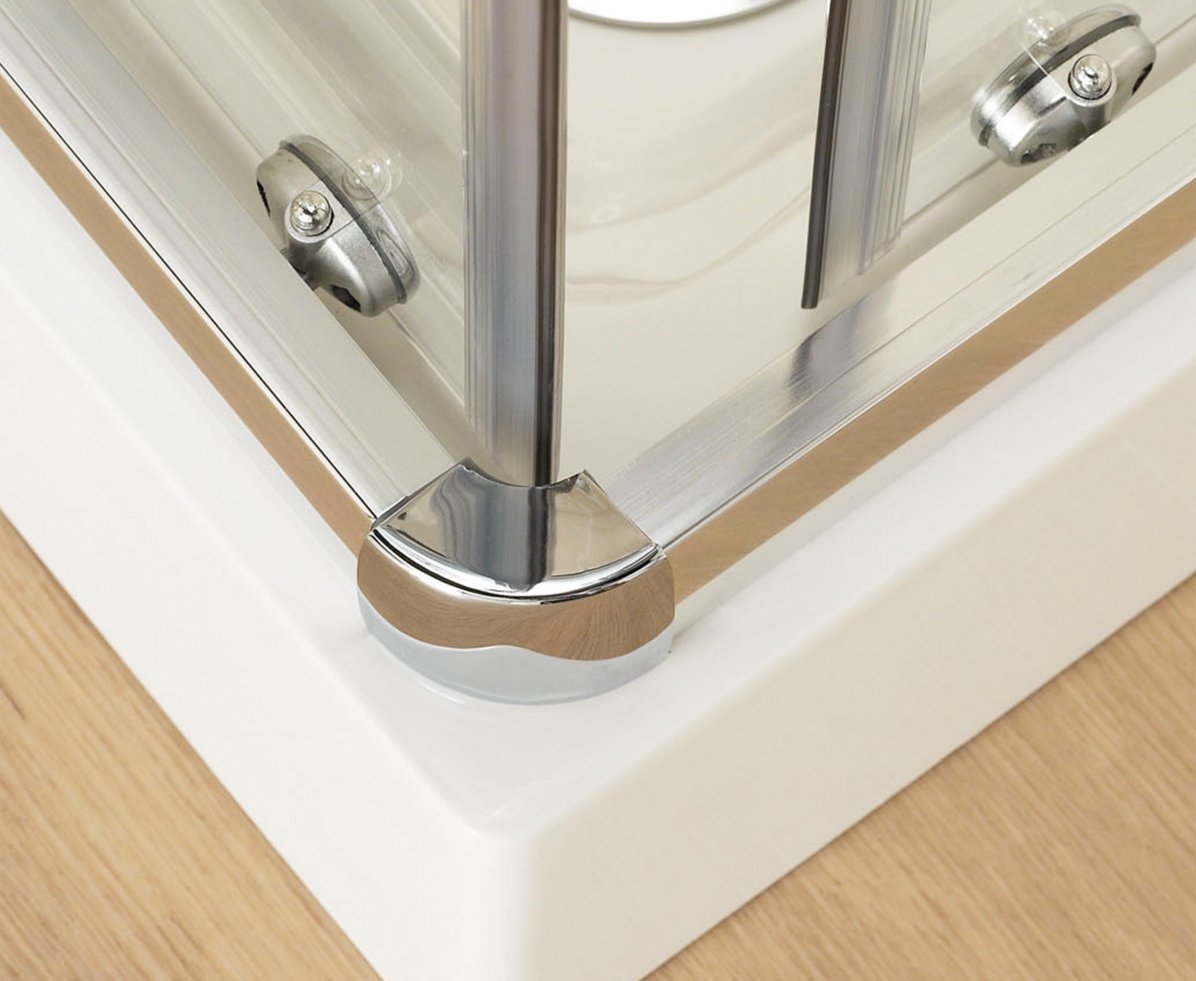
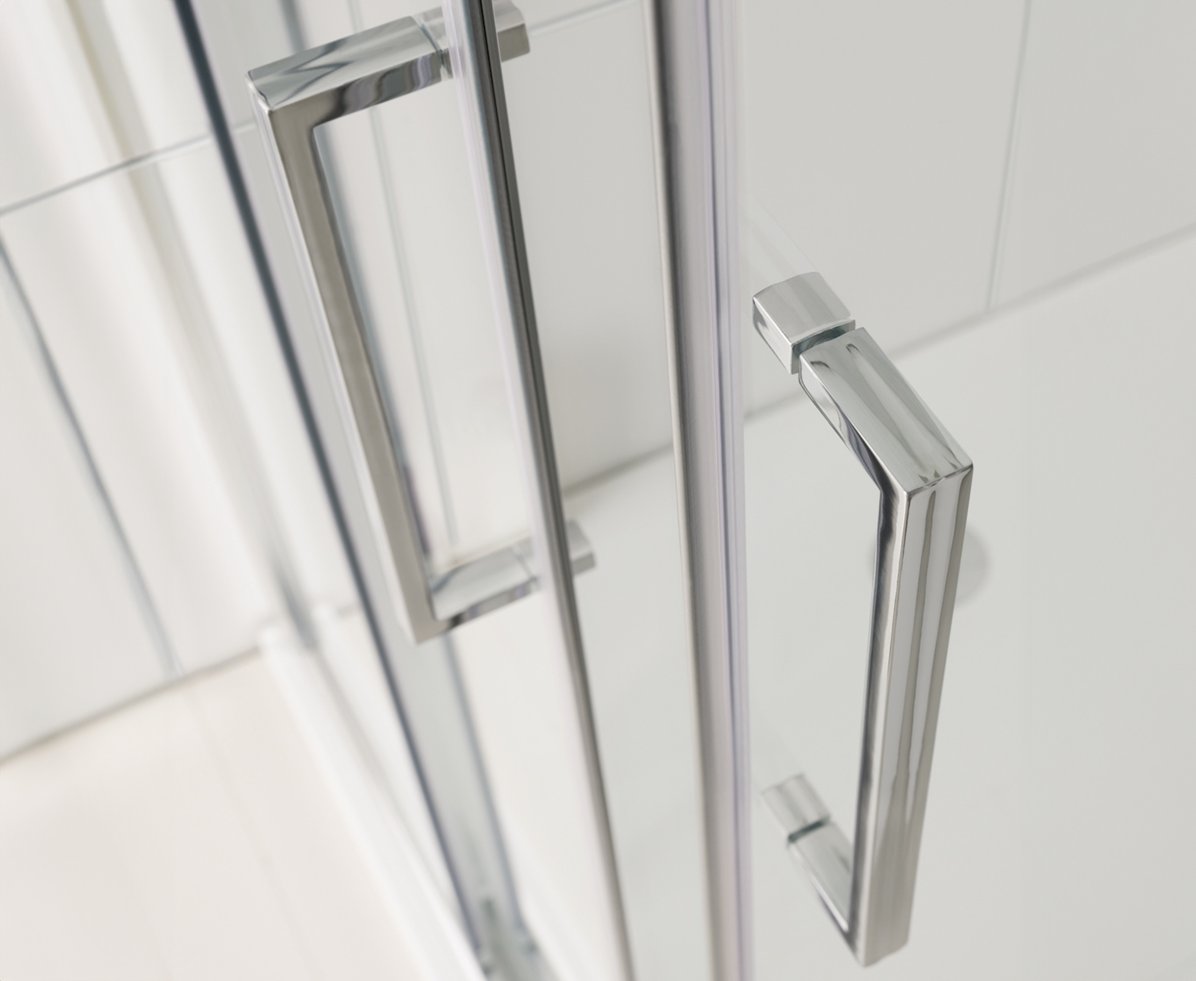
Hinged Doors
Hinged doors are like regular doors - they're attached to the frame with hinges and swing open. In a corner entry shower, you'd typically have two hinged doors that meet in the corner.
These doors can give your bathroom a classic, elegant look. They're easy to clean because you can access both sides easily. Plus, they provide a wide opening, which is great for accessibility.
The downside? They need space to swing open. So they're best for larger bathrooms or ones where the shower is positioned away from other fixtures.
Saloon Doors
Saloon doors, also called swinging doors, are a fun option. They're like the doors you see in old Western movies - they swing both ways and don't latch closed.
The good thing about saloon doors is they're super easy to use. Just push them open either way. They also don't need as much clearance as regular hinged doors.
On the flip side, they don't seal as tightly as other door types. This means they're not great at keeping water in the shower. They work best in modern, open-plan bathrooms where a bit of water splash isn't a big deal.
Bifold Doors
Bifold doors are like accordion doors. They're made up of panels that fold against each other when you open them.
These doors are great space-savers. When open, they fold up to take up very little room. This makes them ideal for small bathrooms or en-suites.
The downside is that they can be a bit trickier to clean because of all the folds and tracks. They also might not feel as sturdy as other door types.
Bifold doors work well in bathrooms where you want to maximise space but still have a full-sized shower enclosure.
Choosing the Right Corner Entry Shower Enclosure for Your Bathroom
Picking the perfect corner entry shower enclosure isn't just about looks. There's a bunch of stuff you need to think about to make sure you get one that works for you. Let's break it down:
Bathroom Size and Layout: First up, measure your bathroom. No, seriously - get out that tape measure. You need to know exactly how much space you're working with. A big shower enclosure in a tiny bathroom is going to be a pain, no matter how nice it looks.
Think about where your toilet, sink, and other fixtures are. You don't want to bump into things every time you get in or out of the shower. Also, check where your plumbing is. Moving pipes can get expensive, so it's usually easier to work with what you've got.
Personal Preferences and Usage: Think about how you use your shower. Do you need space for two people? Or maybe you want room for a shower seat? If you've got kids or pets you need to wash, you might want a bigger enclosure.
Consider who will also be using the shower. If anyone in your house has mobility issues, you'll want to make sure the doors are easy to open and there's enough space to move around.
Budget Considerations: Let's talk money. Corner entry shower enclosures come in a wide range of prices. Basic models can be pretty affordable, while high-end ones with all the bells and whistles can cost a pretty penny.
Remember, the price isn't just about the enclosure itself. Factor in installation costs too. If you're handy, you might be able to install it yourself. But if not, you'll need to budget for a professional.
Materials and Finishes for Corner Entry Shower Enclosures
Now let's look at what these enclosures are made of and how they can look:
Common Materials: Glass is the most popular material for shower enclosures. It looks sleek and lets light through, which can make your bathroom feel bigger. Most shower glass is tempered for safety - if it breaks, it shatters into small, dull pieces instead of sharp shards.
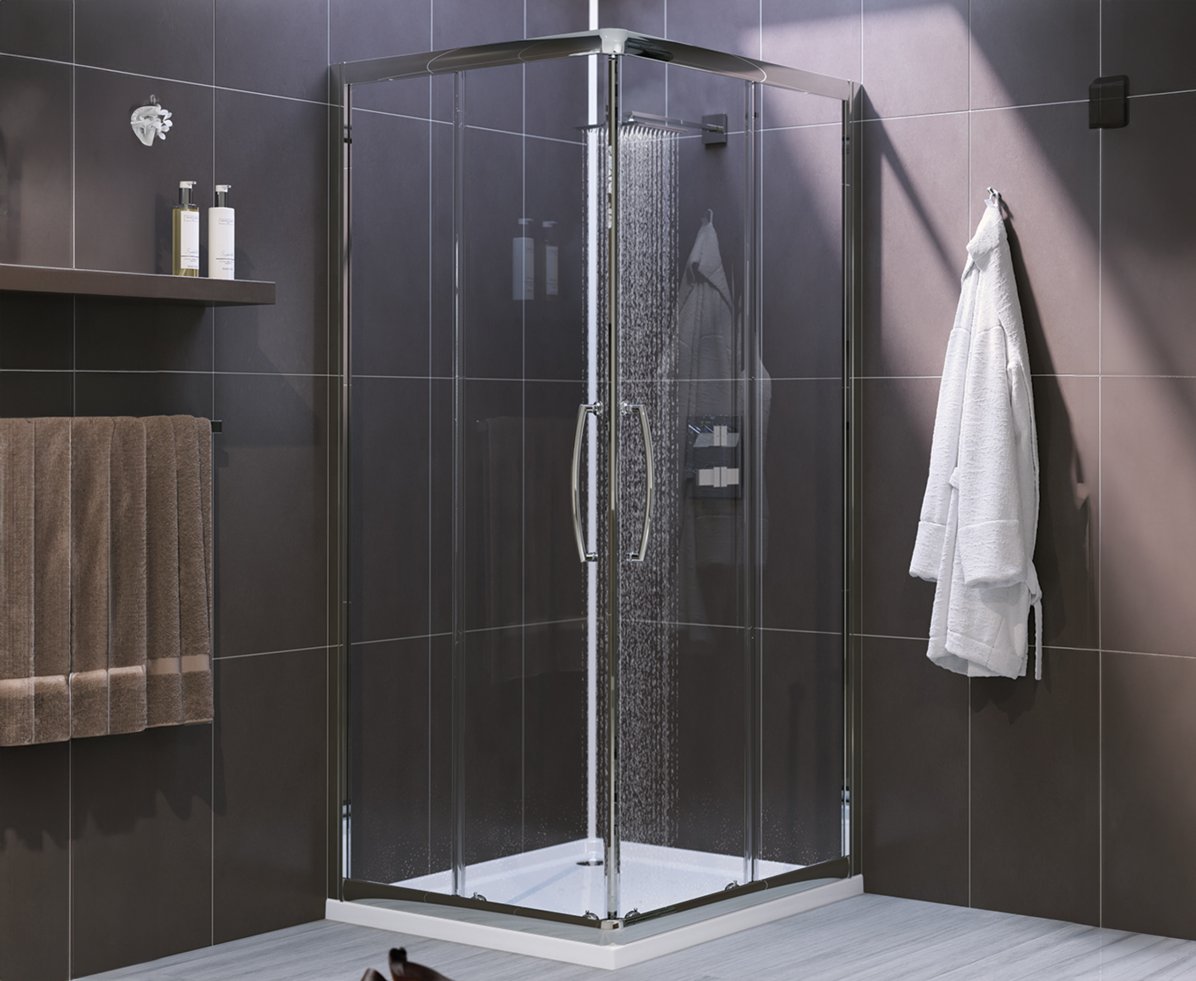
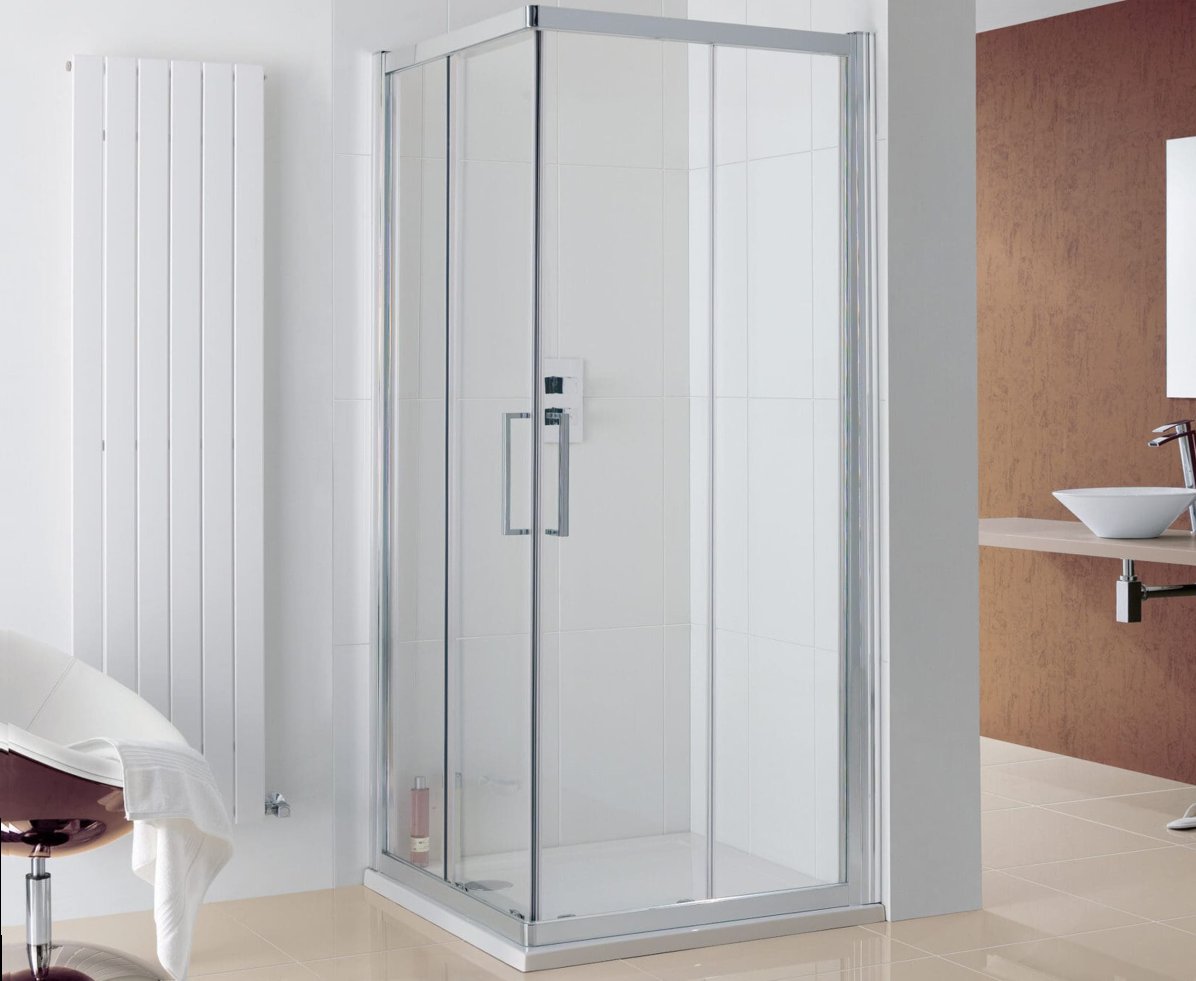
Acrylic is another option. It's lighter than glass and doesn't shatter, which makes it safer. It's also usually cheaper. The downside? It can scratch more easily and might not look as high-end as glass.
Different Finishes: Clear glass is classic. It showcases your tile work and makes your bathroom feel open. But it also shows water spots and soap scum more easily, so you'll need to clean it more often.
Frosted glass gives you more privacy and hides water spots better. You can get fully frosted glass or just a frosted strip for a bit of privacy.
Textured glass is another option. This can range from subtle patterns to more dramatic designs. It's great for hiding water spots and adding some visual interest.
Matching with Bathroom Decor: Your shower enclosure is a big part of your bathroom, so you want it to look good with everything else. Think about your overall bathroom style. Is it modern? Traditional? Spa-like?
For a modern look, you might go for clear glass with minimal hardware. For a more traditional bathroom, frosted or textured glass could work well.
Don't forget about the hardware - the handles, hinges, and frames. These usually come in chrome, brushed nickel, or oil-rubbed bronze. Pick a finish that matches your faucets and other bathroom fixtures.
Frequently Asked Questions (FAQs)
What is the best type of door for small bathrooms? For small bathrooms, sliding doors are usually your best bet. They don't need any extra space to swing open, which is great when you're working with limited room. Bifold doors can also be a good choice for tight spaces. If you've got a bit more room, pivot doors can work well too, as they don't swing out as far as regular hinged doors.
Are corner entry shower enclosures more expensive than other types? Not necessarily. The price of a shower enclosure depends on a lot of factors, like size, materials, and brand. Corner entry enclosures can actually be pretty cost-effective because they make good use of space. That said, if you're going for a high-end model with fancy features, it'll cost more than a basic rectangular enclosure. Shop around and you'll find options for most budgets.
How do I measure my bathroom for a corner entry shower enclosure? Start by measuring the corner where you want to put the enclosure. Measure from the corner out along both walls to where you want the enclosure to end. Don't forget to measure the height too - from the floor to where you want the top of the enclosure. It's a good idea to measure a few times to make sure you've got it right. Also, check for any obstacles like windowsills or radiators that might get in the way.
Can I install a corner entry shower enclosure myself? It depends on your DIY skills and the complexity of the enclosure. Some simpler models are designed for DIY installation and come with clear instructions. But if you're not confident in your abilities, it's better to get a pro. Proper installation is crucial to prevent leaks and ensure the enclosure lasts.
What are the most durable materials for shower enclosures? Tempered glass is tough stuff and is the go-to for most shower enclosures. It's designed to withstand impacts and temperature changes. If it does break, it shatters into small, relatively safe pieces. For frames and hardware, look for materials like stainless steel or aluminium. These resist rust and corrosion, which is important in the damp environment of a bathroom. Some high-end enclosures use treated glass that resists water spots and makes cleaning easier.

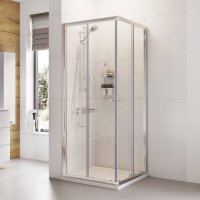
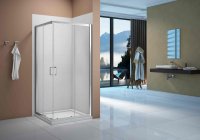
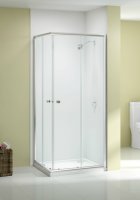
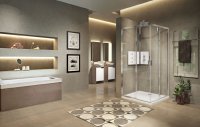
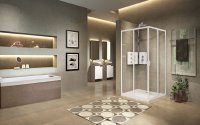
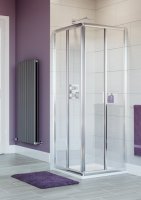
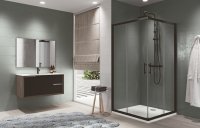
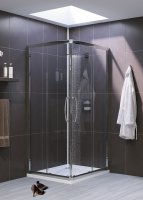
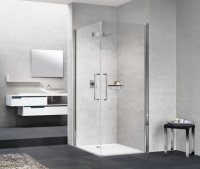
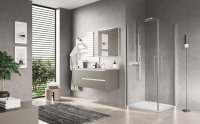
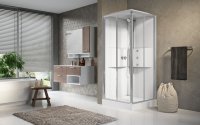

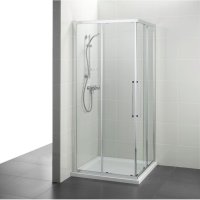
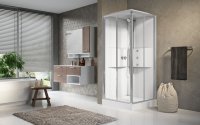
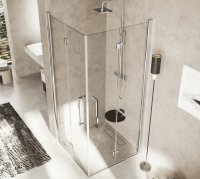
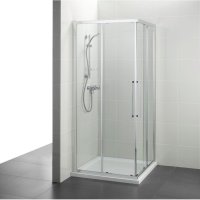

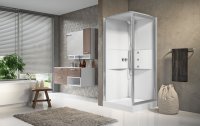
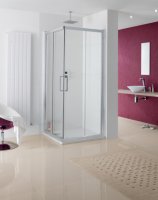
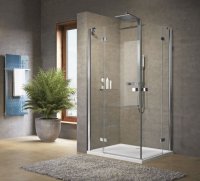
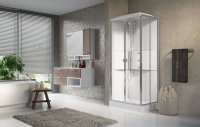
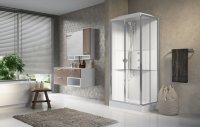
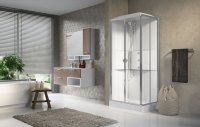
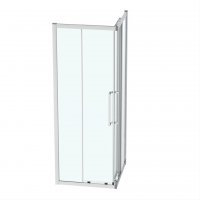


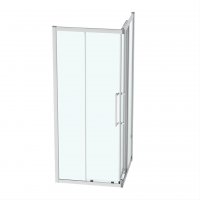
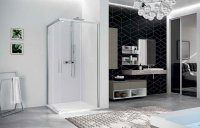
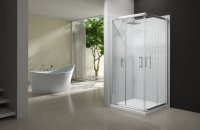
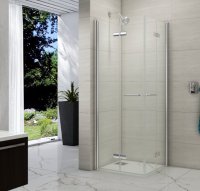
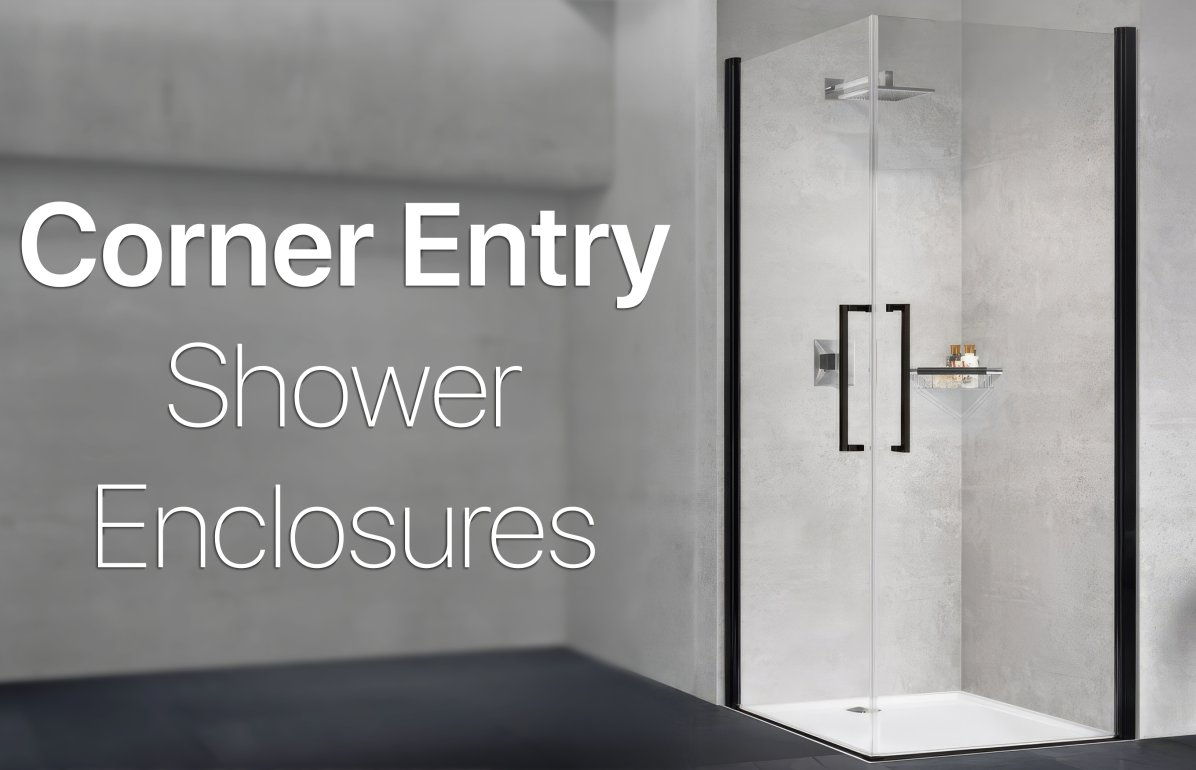
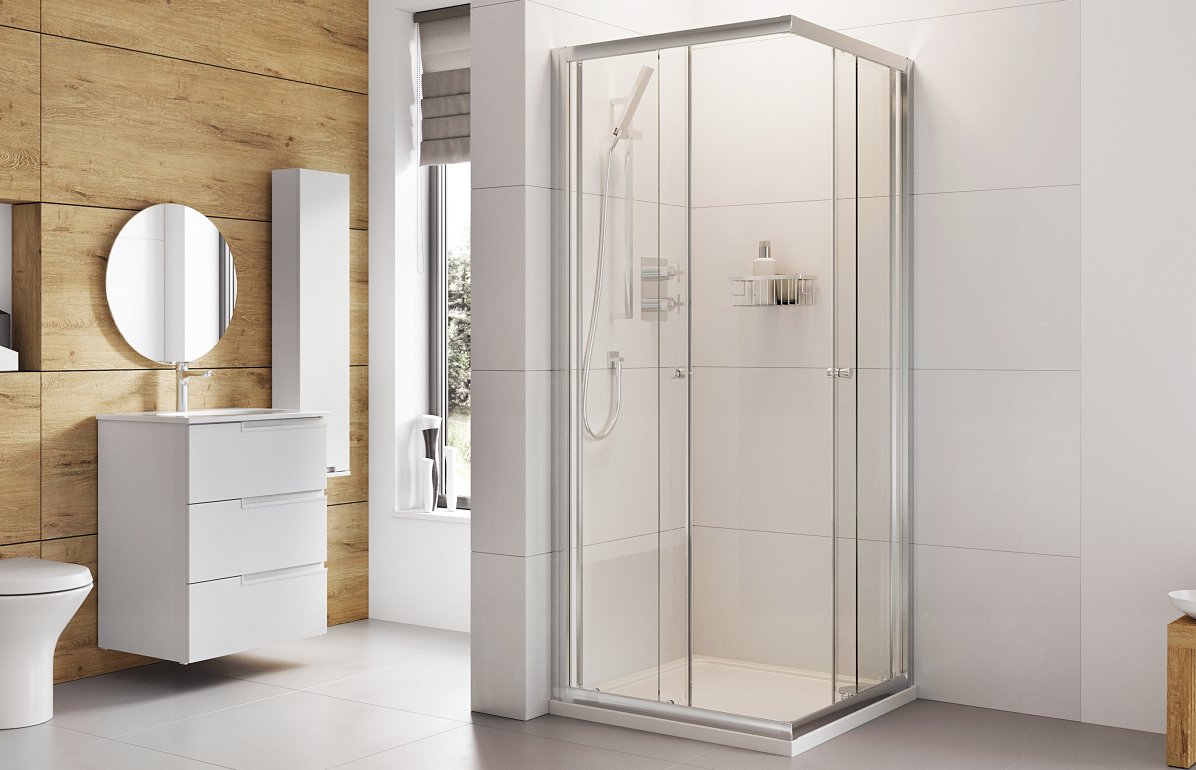
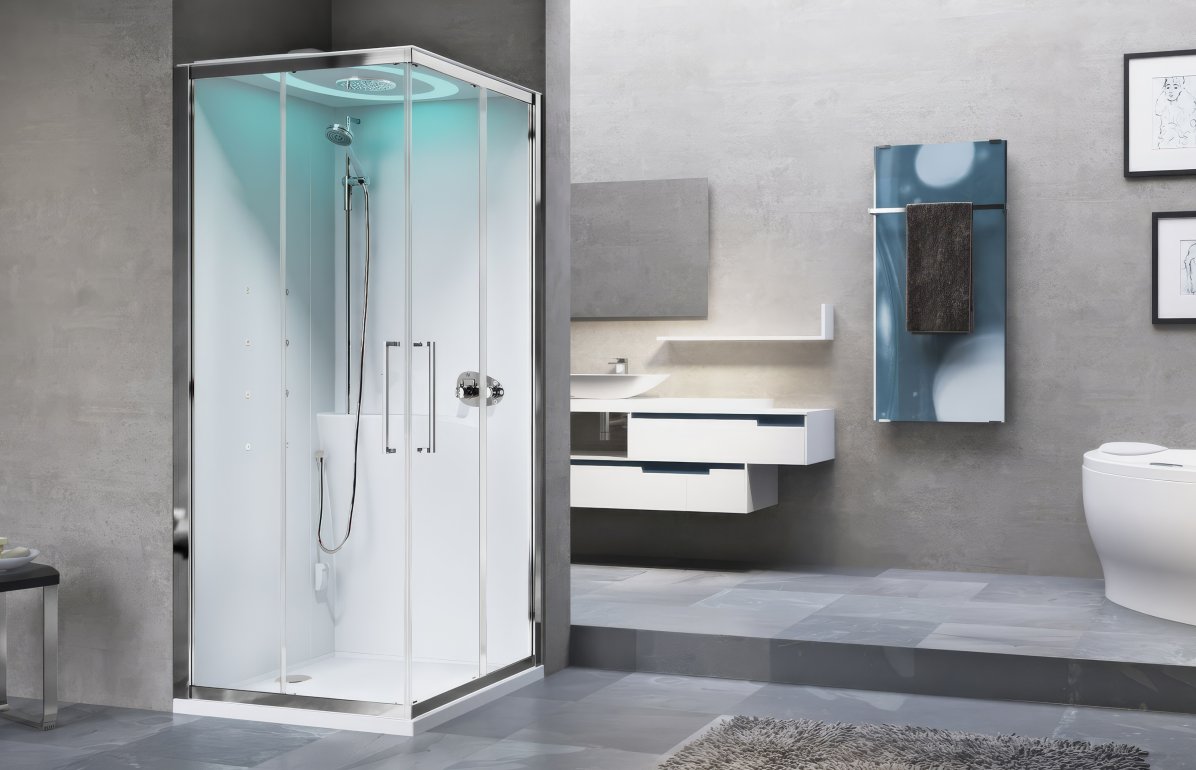




Stay Connected